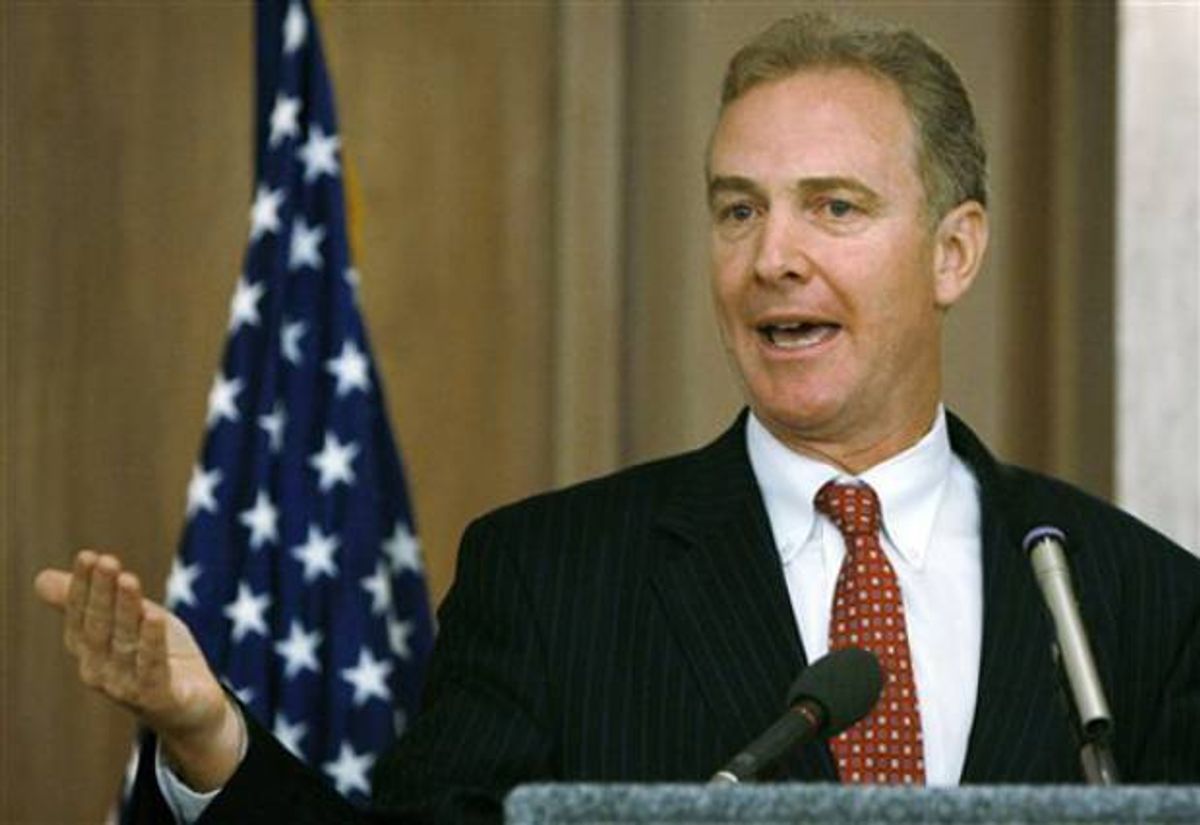In an incisive new piece, the Huffington Post's Ryan Grim and Samantha Lachman dive deep into the Social Security debate animating the Democratic primary battle in Maryland, where Reps. Chris Van Hollen and Donna Edwards are vying to succeed retiring Democratic Sen. Barbara Mikulski in 2016. The debate isn't over whether Social Security should be cut, expanded, or left alone, however: Both candidates say they want to expand it. Where they diverge is on the question of who is the most credible messenger for that proposal.
Some background: As I wrote last week, Edwards' entry into the race has thrilled Democratic liberals, who tout Edwards' forcefully progressive stances on civil liberties, economic justice, and foreign policy. While he's not exactly Joe Lieberman, Van Hollen has encountered some suspicion in left-wing quarters, where some activists are uneasy over his previous support for the Bowles-Simpson deficit reduction framework. Though Van Hollen distanced himself from Bowles-Simpson's proposed Social Security benefit cuts and instead emphasized its revenue enhancements, some liberals are skeptical of his endorsement of Rep. John Larson's (D-CT) proposal to boost recipients' cost-of-living adjustments and shore up the system's finances through new taxes.
"It is well and good to say that one opposes Social Security benefit cuts in the abstract -- and even that one supports expanding Social Security -- but that position means little if one is willing to support a larger budget package that contains Social Security benefit cuts," MoveOn.org's Nick Berning told the Huffington Post. Edwards has echoed such sentiments, warning voters, “Too many Democrats -- to say nothing of Republicans -- remain all too willing to hurt grandparents, retired veterans, and the disabled in the name of ‘compromise.’”
Edwards is a longstanding backer of expanded Social Security benefits, an idea that has also garnered support from Democrats like Massachusetts Sen. Elizabeth Warren and former Maryland Gov. Martin O'Malley, who's considering a 2016 presidential campaign. The proposal has gained steam even as Republicans and centrist Democrats flirt with making cuts to the program, on the grounds that the system's finances are troubled in the long run. Liberals who support a strengthened program note that there are ways to secure the program's future without raising the retirement age or curtailing benefits for future retirees; for one thing, progressives point out, the Social Security payroll tax applies only to the first $118,500 in income, meaning that many upper-middle-class earners pay as much into the system as millionaires and billionaires. Moreover, as the Nobel Prize-winning economist Paul Krugman has written, proposed increases in the retirement age conveniently ignore the fact that despite increased life expectancy overall, those who most rely on the program -- people with low incomes and less education -- haven't seen much of a life expectancy bump at all. A party committed to fairness would not countenance changes that hit hardest seniors for whom Social Security is a lifeline.
This pushback against standard shibboleths about the need to "reform" Social Security illustrates how progressives can reshape the debate within the Democratic Party. Van Hollen's embrace of an expanded program -- whatever doubts it encounters -- underscores that concerted pressure can change the terms of the discourse about key policy issues.
Of course, as Berning said, it's one thing to stake out a progressive position in a heated Democratic primary. It's quite another to commit to action once one is elected. That's why it's crucial for progressives not only to pressure candidates and back those who've been longtime supporters of liberal causes, but also to think beyond Election Day.



Shares